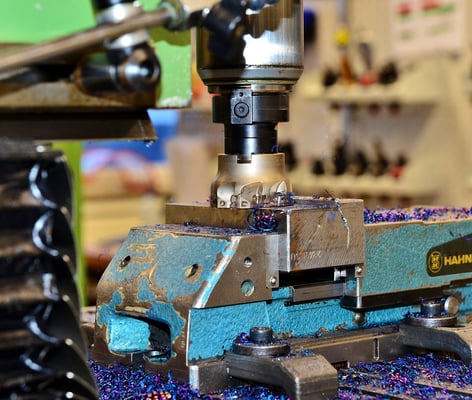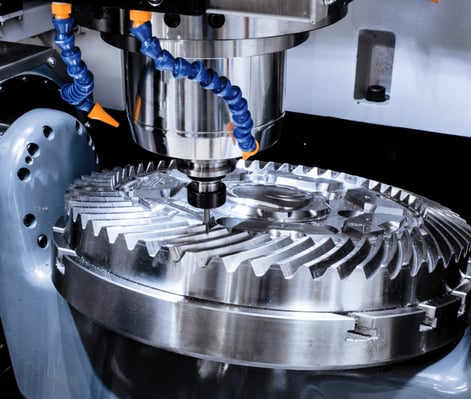Shaping Tomorrow: The Precision Artistry of Milling from Manual Mills to CNC Mastery
From traditional manual mills to cutting-edge CNC technology, explore our comprehensive guide to mastering milling. Discover the artistry and efficiency behind crafting intricate components for various industries. Join us on a journey through the evolution of milling technology and unleash your manufacturing potential today!
MILLING
Benchoula Abderahman
5/4/20242 min read


Milling is a fundamental operation in the field of machining that shapes raw materials with unmatched accuracy and adaptability. Manufacturing processes across sectors have been revolutionized by the art of milling, which has grown dramatically from the traditional manual mills to the sophisticated CNC (Computer Numerical Control) technology.
The mainstay of machining companies for many years, manual milling machines use revolving cutting blades to remove material and skillfully construct complex shapes. With painstaking attention to detail, skilled artisans skilled in hand milling can turn raw material into sophisticated components, such as housings or gears.
But a new age of milling possibilities has begun with the introduction of CNC milling machines. The accuracy, reproducibility, and efficiency of CNC mills are unparalleled due to their computer-controlled perfection. By pushing the limits of what is possible in manufacturing, intricate designs that formerly needed hours of manual effort may now be programmed and produced with speed and precision.
The adaptability of CNC milling technology is one of its main benefits. CNC mills are capable of handling a broad variety of materials, including plastics and metals, and they can easily create complex shapes and profiles. With unparalleled speed and precision, CNC milling machines enable businesses to realize concepts for high-volume production or quick prototyping.
Additionally, CNC mills include improved automation features that maximize efficiency while reducing downtime and guaranteeing worker safety, such coolant systems, tool changes, and monitoring sensors.
Innovation and efficiency have been made possible by the advancement of milling technology in the dynamic field of production. Precision and adaptability of CNC mills continue to drive innovation and influence the future of manufacturing, from consumer electronics to aerospace components.
Further prospects for creativity and innovation in milling are promised by the ongoing development of CNC technology. Future manufacturing will continue to be shaped by the accuracy and productivity of CNC mills, from complex prototypes to mass production.
Discover the power of precision at Algerian Machinist by embarking on a journey through the development of milling technology, regardless of experience level.


